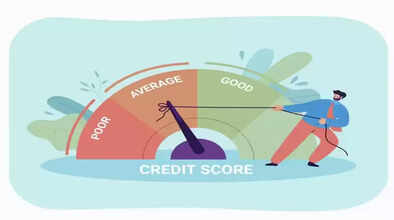Have you read RBI's rule related to checking the CIBIL Score? Your score will decrease due to this mistake; know the real reason.

"Hey, don't check your Cibil score again and again, your points will decrease!" - This is an advice that we get to hear from friends, family and even some bank agents. Due to this fear, millions of people shy away from even looking at their most important financial report. But is it really true? There can be many reasons for a low credit score. Usually, the reason for a low CIBIL score is delay in repaying the loan. But, to know whether checking the score again and again reduces it or not, you first have to understand Hard Inquiry and Soft Inquiry. In the recent past, RBI has changed the rules related to this.
The straight and flat answer to this question is - No! But with a 'condition'. When you check your score yourself for your own curiosity, it is called 'Soft Inquiry'. It has absolutely no effect on your score. Even if you check your score 10 times a day, it will not decrease. So what is there to fear? Understand the real game in the next slide.
The real villain is 'hard inquiry'. When you apply for a loan (personal, home, car) or credit card in a bank, it takes out your credit report to check your ability to repay the loan. This process is called 'hard inquiry'. Every hard inquiry can reduce your Cibil score by a few points (usually 5-10 points).
Earlier it used to take a long time to update the credit report. But now according to RBI rules, it is mandatory for all credit bureaus to update the credit score of customers every 15 days. This means that if you have repaid a loan, its positive effect will be seen on your report quickly. Also, every hard inquiry is recorded in your report, which you can see.
This is the biggest and most dangerous enemy of Cibil score. Even a single day's delay in paying your EMI or credit card bill has a deep negative impact on your score. It tells the system that you are not a responsible borrower. The first rule to save your score is - always pay on time.
Suppose your credit card limit is ₹1 lakh and you spend ₹80,000-₹90,000 every month. This is called 80-90% 'credit utilization ratio' and it is considered very bad. Always try not to use more than 30% of your total credit limit. This shows that you have control over your expenses.
If you negotiate with the bank and 'settle' your loan for less than the principal amount, it gets recorded on your report like a red flag. 'Settle' means that you did not pay the full amount and the bank suffered a loss. This can affect your score for years. Always try to 'close' the loan.
Becoming a guarantor for a loan in a friend or relation is a big responsibility. If that person does not pay his EMI on time, it will directly affect your Cibil score because legally you are equally responsible for that loan.
The conclusion is clear - check your score regularly (through soft inquiry), it will help you. Avoid real enemies, make timely payments, do not use more than 30% of the credit limit, do not apply for multiple loans in a short period of time, and become a guarantor for someone only after thinking carefully.
Cibil score is a three-digit number, which reflects your credit history and creditworthiness. This score ranges from 300 to 900, in which a score of 750 or above is considered a good score.

